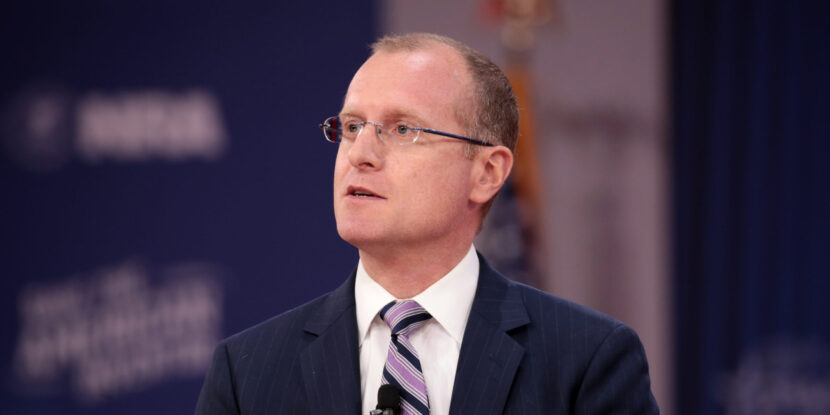
PULSE POINTS:
❓What Happened: A group of House Democrats reintroduced a resolution advocating for federal reparations for descendants of slaves and other black Americans.
👥 Who’s Involved: Led by Rep. Summer Lee (D-PA), supported by Rep. Ayanna Pressley (D-MA), Sen. Corey Booker (D-NJ), and others.
Your free, daily feed from The National Pulse.
📍 Where & When: Washington, D.C.; resolution reintroduced this week.
💬 Key Quote: “We’re owed repair, we’re owed restitution, and we’re owed justice,” said Rep. Summer Lee.
⚠️ Impact: The resolution calls for trillions of dollars in reparations and aims to address racial wealth gaps, health disparities, and “environmental racism.”
IN FULL:
House Democrats, led by Representative Summer Lee (D-PA), have reintroduced a resolution calling for federal reparations for descendants of slaves and other black Americans, proposing trillions of dollars in payments. First introduced by former Rep. Cori Bush (D-MO) in 2023, the “Reparations Now Resolution” seeks to address what its supporters describe as historical injustices and systemic inequities.
“We’re here to say that there’s no more waiting, no more watering down, no more putting justice on layaway,” Rep. Lee said after reintroducing the measure in the House of Representatives. The Pennsylvania Democrat argued that the United States had benefited from “stolen labor, stolen land, and stolen lives” over the last 400 years and declared that black Americans are owed “repair, restitution, and justice.”
The resolution also includes proposals to address the racial wealth gap, improve black maternal health outcomes, enhance education funding, and combat what proponents call “environmental racism.” Lee framed these measures as part of a broader moral obligation, saying, “This is a moment in time where societies are shaped [and] new societies are built. We should be the ones who are shaping it.”
Rep. Ayanna Pressley (D-MA) echoed Lee’s sentiments during a press event, describing the current state of the U.S. as “anti-Blackness on steroids.” She further asserted, “The antidote to anti-Blackness is to be pro-Black, and we will do it unapologetically.” Pressley also called for immediate action, stating, “The U.S. government owes us a debt, and we need reparations now.”
The push for reparations was also discussed earlier this week during a congressional briefing titled, “We Can’t Wait: Advancing Reparative Justice in Our Lifetime.” Participants included Senator Corey Booker (D-NJ), Reps. Hank Johnson (D-GA), Lee, and Pressley. The briefing highlighted the “Reparations Now Resolution” and Booker and Pressley’s separate initiative, the “Commission to Study and Develop Reparation Proposals for African Americans Act.”

PULSE POINTS:
❓What Happened: The Federal Communications Commission (FCC) will allow Verizon’s purchase of Frontier, a regional telecom company, to move forward, with the former agreeing to enact a series of reforms in alignment with President Donald J. Trump’s pro-worker, America First agenda.
👥 Who’s Involved: Verizon, Frontier, the FCC, FCC Chairman Brendan Carr, tower climbers, and telecom workers.
Your free, daily feed from The National Pulse.
📍 Where & When: Washington, D.C., on Friday, May 16, 2025.
💬 Key Quote: “The agreement between NATE, Verizon, and the FCC is massive news. As a 36-year tower contractor and employer of over 200 tower technicians, this brings fairness back to our relationship. We can’t thank Chairman Carr enough for looking out for Main Street while still being fair to Wall Street. We hope T-Mobile and AT&T will follow Verizon’s lead,” said Craig Snyder, a tower climber and one of the negotiators for his industry in the Verizon acquisition deal, in comments to The National Pulse.
⚠️ Impact: Verizon’s acquisition approval comes with a commitment to ending its diversity, equity, and inclusion (DEI) policies and programs and agreeing to a new set of pro-worker conditions with the tower climber and telecom worker industries.
IN FULL:
The Federal Communications Commission (FCC) is allowing telecom giant Verizon to acquire Frontier, a regional communications company, with the aim of expanding its fiber Internet service. Notably, Verizon’s acquisition was contingent on a series of policy and labor practice changes, in alignment with President Donald J. Trump’s pro-worker America First agenda, imposed by the FCC through its regulatory authority.
“By approving this deal, the FCC ensures that Americans will benefit from a series of good and common-sense wins. The transaction will unleash billions of dollars in new infrastructure builds in communities across the country—including rural America,” FCC Chairman Brendan Carr said in a statement announcing the acquisition approval. “This investment will accelerate the transition away from old, copper line networks to modern, high-speed ones. And it delivers for America’s tower and telecom crews who do the hard, often gritty work needed to build high-speed networks.”
One of the biggest concessions being made by Verizon is the company’s decision to end its diversity, equity, and inclusion (DEI) policies and programs. In a letter to Chairman Carr on May 15, the telecom company acknowledged that it “recognizes some DEI policies and practices could be associated with discrimination.” Verizon goes on to announce that it “is changing its HR structure and will no longer have a team or any individual roles focused on DEI.” The move comes after Chairman Carr informed a number of telecom and Internet technology companies that the FCC would halt license approvals and authorizations for those that maintain discriminatory DEI programs.
The FCC also highlights that the deal represents a win for American workers. Verizon, as part of the approval, is committing to rework its agreements with NATE, the Communications Infrastructure Contractors Association, and remove the costly burdens its policies have placed on tower climbers. These new provisions include taking into account considerations in pricing when it comes to site conditions, the adoption of regional pricing for tower climbers and telecom workers’ labor, 30-day payment terms with fair indemnity clauses, and limits on Verizon’s use of 1099 outside contractors, which have been used to undercut worker wages.
Craig Snyder, a tower climber and negotiator for his industry in the Verizon acquisition deal, told The National Pulse: “The agreement between NATE, Verizon, and the FCC is massive news. As a 36-year tower contractor and employer of over 200 tower technicians, this brings fairness back to our relationship. We can’t thank Chairman Carr enough for looking out for Main Street while still being fair to Wall Street. We hope T-Mobile and AT&T will follow Verizon’s lead.”
show less

 1 month ago
2
1 month ago
2








 English (US) ·
English (US) ·